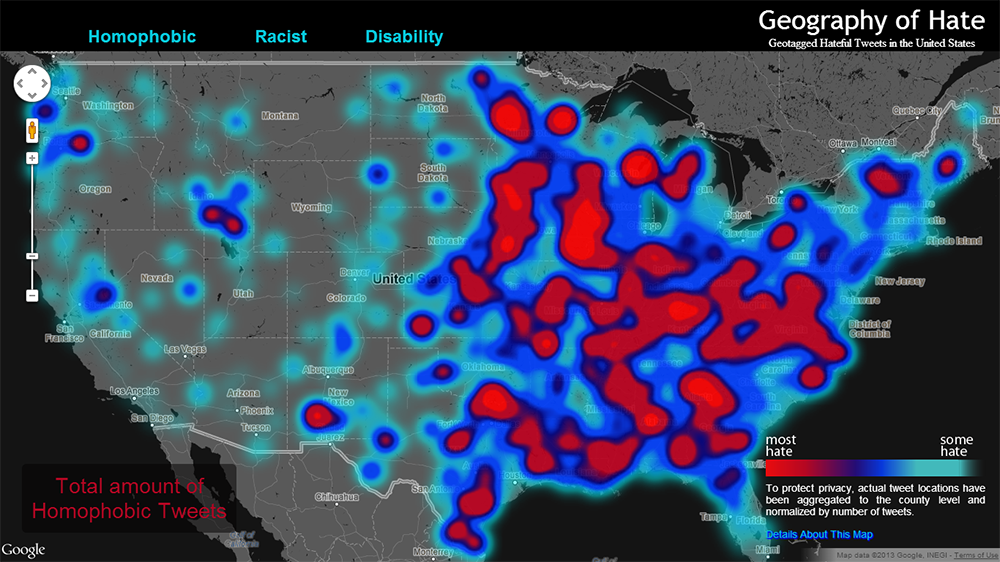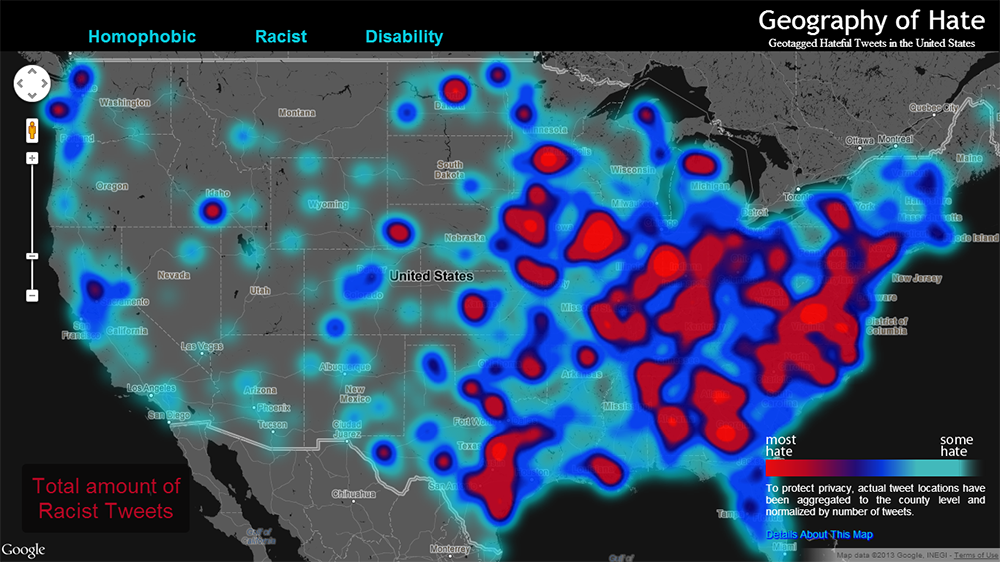Julius Skrrvin
I be winkin' through the scope
Hate Map


The Geography of Hate is part of a larger project by Dr. Monica Stephens of Humboldt State University (HSU) identifying the geographic origins of online hate speech. Undergraduate students Amelia Egle, Matthew Eiben and Miles Ross, worked to produce the data and this map as part of Dr. Stephens' Advanced Cartography course at Humboldt State University.
The data behind this map is based on every geocoded tweet in the United States from June 2012 - April 2013 containing one of the 'hate words'. This equated to over 150,000 tweets and was drawn from the DOLLY project based at the University of Kentucky. Because algorithmic sentiment analysis would automatically classify any tweet containing 'hate words' as "negative," this project relied upon the HSU students to read the entirety of tweet and classify it as positive, neutral or negative based on a predefined rubric. Only those tweets that were identified by human readers as negative were used in this analysis.
To produce the map all tweets containing each 'hate word' were aggregated to the county level and normalized by the total twitter traffic in each county. Counties were reduced to their centroids and assigned a weight derived from this normalization process. This was used to generate a heat map that demonstrates the variability in the frequency of hateful tweets relative to all tweets over space. Where there is a larger proportion of negative tweets referencing a particular 'hate word' the region appears red on the map, where the proportion is moderate, the word was used less (although still more than the national average) and appears a pale blue on the map. Areas without shading indicate places that have a lower proportion of negative tweets relative to the national average.
The numbers that appear in the map during a mouse hover indicate the total number of hateful tweets and number of unique users sending them in each county.
Read more about the research and methods behind this project at www.FloatingSheep.org.
Funding was provided by the University Research and Creative Activities Fellowship at Humboldt State University. Twitter data was obtained from the DOLLY project at University of Kentucky.
This map was built on the Google Maps API.

